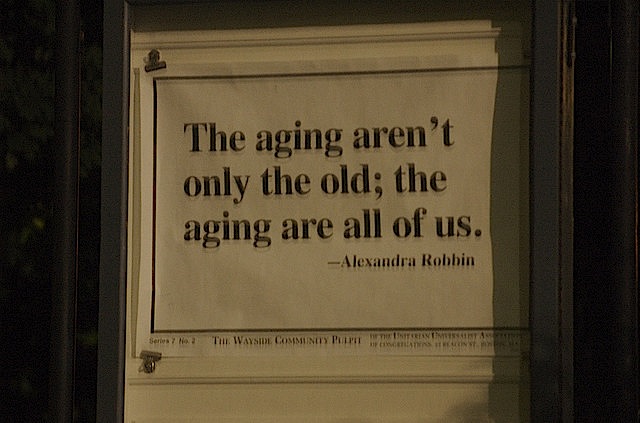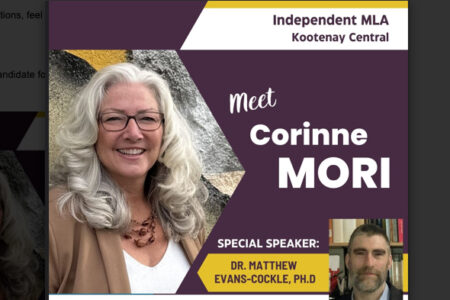Nelson Activist Weighs in on Province's Plan to Appoint Advocate for Seniors
A local seniors’ activist cautionsly welcomes the B.C. government’s announced this week that it will appoint an advocate for seniors.
“The position will be as useful as the government allows it to be,” says Joan Reichardt of Nelson’s Seniors Coordinating Society.
She is referring to the fact the government has so far defined neither the job description nor the powers of the position. “The person will need to have the power to actually intervene in situations where there are major concerns about elder abuse or negligence,” she says.
Are consultations really needed?
Health Minister Mike de Jong said in a news release that the advocate would have “independent authority.” The job won’t be filled for another six months because his ministry will be holding consultations around the province on the question of what powers the advocate should have.
Reichardt says she’s not sure why the consultations are needed. “I don’t see any reason it could not be implemented immediately rather than doing this performance around the province meeting with groups,” she says. “They already know what seniors groups feel this person should do.”
The appointment of the advocate is part of a larger action plan for seniors that resulted from a damning B.C. Ombudsman’s report on seniors last year.
Problems in care facilities
Asked what issues would be most in need of interventions by the advocate, Reichart says life in seniors’ facilities has many problems. “You have very fragile seniors with a lot of issues and are functioning very poorly for whatever reason, and they are in a facility that is understaffed, and the staff with the best of intentions don’t do as good a job as they might because they are undertrained.”
Some shocking stories moved the government
De Jong acknowledged that the impetus for the changes came from the Vancouver Province’s Boomerangst series, which reported on some serious incidents of elder neglect, including, according to the Vancouver Province, “a 71-year-old man who slipped through care networks and was found dead weighing just 59 pounds in a Penticton motel,” and “88-year-old North Vancouver man Eldon Mooney, a dementia patient who choked to death in a private care home.”
Reichardt says the advocate should look at “breaches of quality care, or negligence. I am not speaking of physical abuse necessarily. I am speaking of day-to-day negligence that is abuse but is not as identifiable as somebody beating up on Granny. I would like to see this advocate able to come in when that sort of thing happens and enforce standards on residential care.”
At risk and malnourished
Reichardt says defining an advocate’s role in care facilities would be relatively easy compared to situations in which the senior is still living at home.
“At the Seniors Coordinating Society we have come across people living at home and at great risk and are who malnourished. We stumble on them by accident, but we know that there are other situations that don’t get stumbled upon. In those instances, there is nobody to blame; it is the seniors themselves whose ability to cope with life has diminished to a point where they are at risk.
“This needs oversight, a way of identifying these people and bringing these people to the attention of the advocate and the advocate having the power to intervene. But at the same time you can only do for people what they will allow you to do.
Poverty and affordable housing
“One of the major problems for seniors at most risk is poverty. You’ve got seniors on very limited incomes often with a multitude of other problems, and particularly vulnerable to an increase in their rent which can leave them with not enough money to eat, never mind the money to buy medications that might not be covered.” Reichardt said it is hard to say whether the advocate could be given the power to deal with the lack of affordable housing.
Some stats on vulnerabiity
Reichardt said that about 15% of the population of Nelson (about 1500 people) are seniors. About one-third of those (500 people) are in receipt of the Guaranteed Income Supplement, which means their income is a maximum of $1200 per month. Of that group, about half (about 250 people) are in need of help they are not getting because they cannot afford it or don’t have family. She said this situation could lead to many situations in which an advocate could help, depending on the office’s still-to-be-decided mandate.
The only public consultation in the Kootenays on the seniors’ advocate will be held in Cranbrook on June 22. Online comments may be made as well until July 31.

























